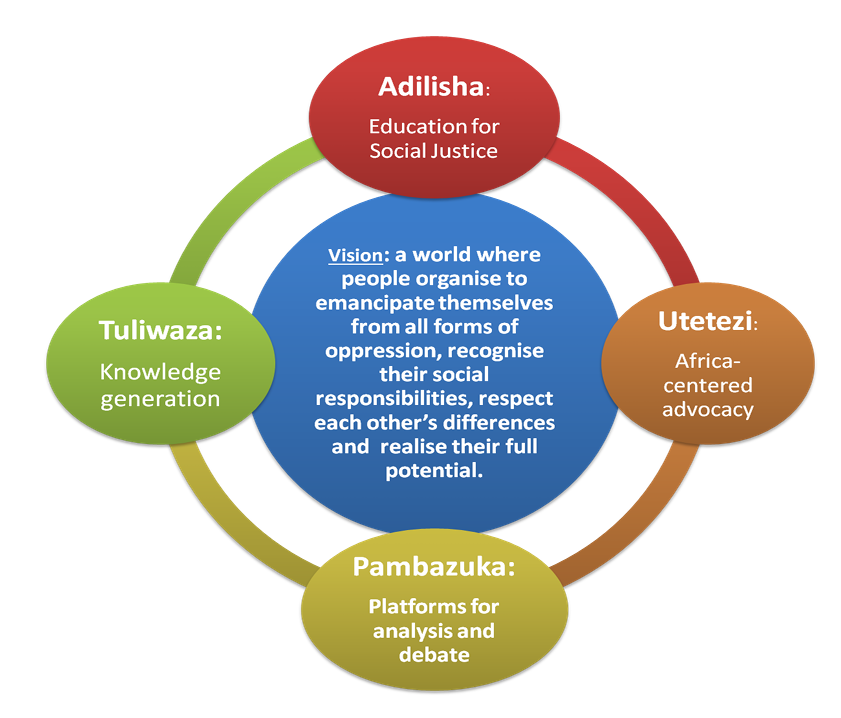
Fahamu is a pan-African organisation established in 1997 to strengthen, nurture, and work with
movements for social justice in Africa.
Our Vision
Fahamu’s work is motivated by our desire to see a world where people organise to emancipate
themselves from all forms of oppression, recognise their social responsibilities, respect each other’s
differences, and realise their full potential.
Our core values
Pan-Africanism: a perspective, worldview and movement that rests on the idea of linked fate and
common destiny of Africans globally and the need to unite themselves in order to combat all types of
oppression.
Feminism: a political discourse and a social movement that sees patriarchal power as a primary axis of
oppression in society. As such, gender equality and non-discrimination are mainstreamed throughout
Fahamu’s work.
People-centred: people, not markets must drive the impetus for change. Fahamu holds a strong
belief that the people most affected by systems of oppression, are the same people who must lead.

Our theory of change
Fahamu exists to strengthen, nurture, and work with movements for social justice in Africa. Part of
that work involves supporting and building solidarity with voices and forces that promote the dignity
and respect for human rights on the one hand, and joining progressive voices and forces that
denounce all forms of social injustices that have oppressed and continue to oppress African people
globally, on the other hand. In partnership with like-minded social movements and organisations both
in Africa and globally, Fahamu will politically inform and raise the conscience of African people
through debate, learning and actions in order to contribute to the full liberation of Africans from all
types of negative forces that oppress them. By focusing on Pan-Africanism, Feminism and People
centredness as its core values, Fahamu believes that solutions to Africa’s problems will be found by
espousing pan-African ideals of seeking for unity and solidarity among African people in order to
achieve social cohesion, economic and political independence. In addition, solutions to Africa’s
problems will come from the involvement of all African people including both women and men,
young and old.
Furthermore, through four programmatic work we will: